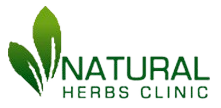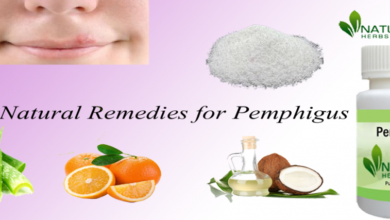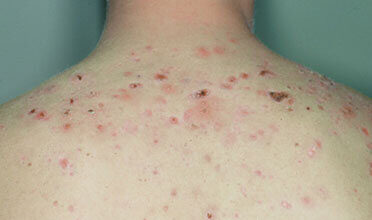Pemphigus Natural Treatments: Effective Strategies to Alleviate Symptoms
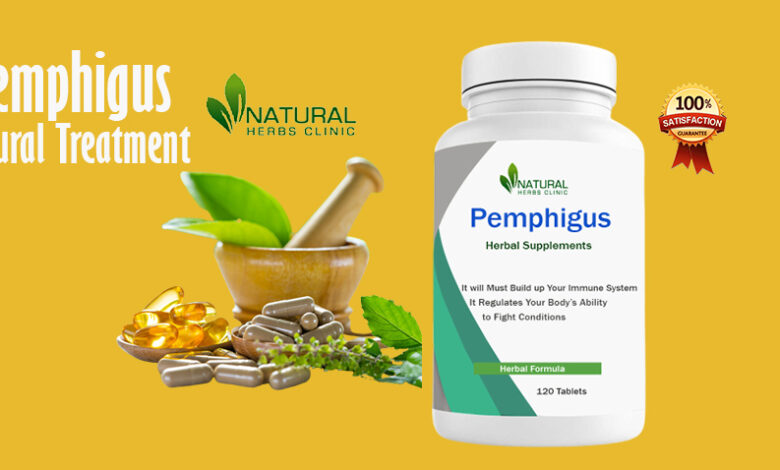
While medical treatments are available, many individuals seek complementary and alternative Pemphigus Natural Treatments to ease their symptoms and improve their overall well-being.
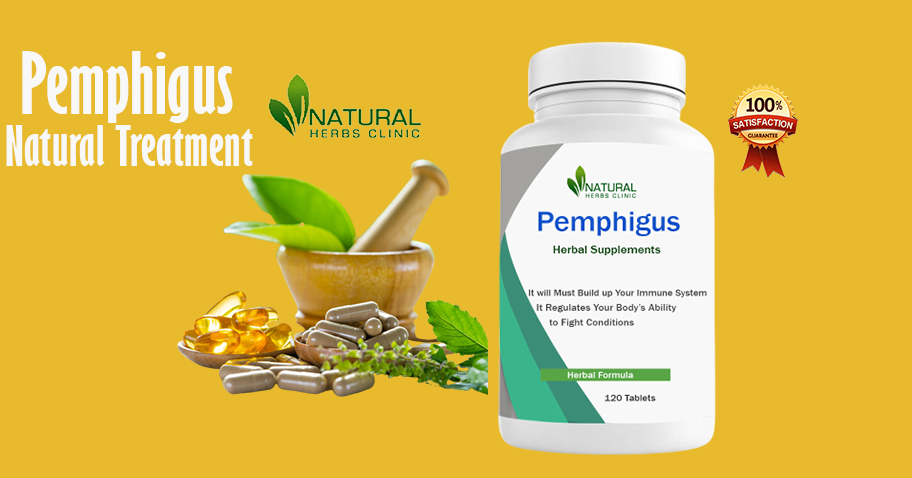
Understanding Pemphigus
Before delving into natural Herbal Treatment for Pemphigus, it’s crucial to understand the basics of pemphigus. Pemphigus, a rare autoimmune disorder, can be a challenging condition to manage. Characterized by painful blistering of the skin and mucous membranes, it can significantly impact a person’s quality of life. This condition occurs when the immune system mistakenly targets proteins in the skin and mucous membranes, leading to the formation of blisters and sores. Pemphigus can manifest in several forms, including pemphigus vulgaris and pemphigus foliaceus, each with its unique set of symptoms and severity levels.
Symptoms of Pemphigus
1. Skin Blisters: The hallmark symptom of pemphigus is the development of fragile, fluid-filled blisters on the skin. These blisters can occur anywhere on the body and are often painful.
2. Mouth Sores: Pemphigus can also affect the mucous membranes inside the mouth, leading to painful oral sores and difficulty in eating and swallowing.
3. Nail Changes: In some cases, individuals with pemphigus may notice changes in their nails, such as thickening or separation from the nail bed.
4. Eye Involvement: Pemphigus may cause eye symptoms, including redness, irritation, and sensitivity to light.
5. General Weakness: The discomfort and pain caused by pemphigus can lead to a feeling of overall weakness and fatigue.
Causes of Pemphigus
The exact cause of pemphigus is not fully understood, but it is believed to be related to an autoimmune response. In individuals with pemphigus, the immune system mistakenly produces antibodies that attack proteins called desmogleins, which are essential for holding skin cells together. This attack results in the separation of skin layers and blister formation.
Diagnosis
Diagnosing pemphigus typically involves a combination of clinical evaluation, skin biopsies, and laboratory tests. A dermatologist or immunologist will assess the patient’s symptoms and may perform a skin biopsy to examine affected tissue under a microscope. Blood tests may also be conducted to detect the presence of specific antibodies associated with pemphigus.
Treatment Options
1. Corticosteroids: Corticosteroid medications, such as prednisone, are often prescribed to suppress the immune response and reduce inflammation. These medications can help control pemphigus symptoms but may have side effects.
2. Immunosuppressive Drugs: In cases where corticosteroids alone are insufficient, immunosuppressive drugs like azathioprine or mycophenolate mofetil may be prescribed to further suppress the immune system.
3. Rituximab: This biologic medication may be used in severe cases of pemphigus to target specific immune cells involved in the autoimmune response.
4. Topical Treatments: Topical corticosteroids or immunosuppressive creams may be applied to affected areas for localized symptom relief.
5. Intravenous Immunoglobulin (IVIG): IVIG therapy involves receiving infusions of immune globulins from donor blood, which can help regulate the immune response.
The Role of Diet and Nutrition
One of the fundamental aspects of managing pemphigus naturally is paying attention to your diet. A nutrient-rich, balanced diet can help boost your immune system and promote skin health. Consider incorporating the following into your daily meals:
1. Antioxidant-Rich Foods
Fruits and vegetables such as berries, spinach, and kale are packed with antioxidants that can help reduce inflammation and support healing.
2. Omega-3 Fatty Acids
Fatty fish like salmon and flaxseeds are excellent sources of omega-3 fatty acids, known for their anti-inflammatory properties.
3. Vitamin C
Citrus fruits, strawberries, and bell peppers are high in vitamin C, which can aid in collagen production and skin repair. Pemphigus Natural Treatments
4. Zinc
Zinc-rich foods like nuts, seeds, and lean meats can contribute to wound healing and immune function.
Pemphigus Natural Treatments
Pemphigus Natural Treatments have been used for centuries to alleviate various health conditions, including autoimmune disorders like pemphigus. Here are some herbal treatments to consider:
1. Aloe Vera
Aloe vera gel is known for its soothing properties and can be applied topically to reduce pain and inflammation associated with pemphigus sores.
2. Turmeric
Curcumin, the active compound in turmeric, has potent anti-inflammatory and antioxidant effects. It can be consumed as a supplement or added to dishes for its health benefits. One of the best elements for Natural Treatment for Pemphigus complete recovery.
3. Calendula
Calendula ointments or creams can help soothe and heal pemphigus blisters and lesions when applied topically.
4. Echinacea
Echinacea supplements may boost the immune system’s response and potentially reduce the frequency and severity of pemphigus flare-ups.
Home Remedies for Symptom Relief
In addition to Pemphigus Natural Treatments, several home remedies can provide relief from pemphigus symptoms:
1. Oatmeal Baths
Taking soothing oatmeal baths can alleviate itching and discomfort caused by pemphigus blisters.
2. Gentle Skincare
Using mild, fragrance-free skincare products and avoiding harsh chemicals can prevent further irritation.
3. Stress Management
Stress can trigger pemphigus flare-ups. Practicing relaxation techniques such as yoga and meditation can help manage stress levels.
Consultation with a Healthcare Professional
While Pemphigus Natural Treatments and remedies can complement medical interventions, it’s essential to consult with a healthcare professional, such as a dermatologist or immunologist. They can provide personalized guidance and ensure that your chosen natural treatments align with your overall Pemphigus Natural Treatments plan.
Living with pemphigus can be challenging, but integrating natural treatments, dietary adjustments, herbal remedies, and Natural Remedies for Pemphigus into your routine can help alleviate symptoms and improve your quality of life. Remember that what works best for one person may differ for another, so it’s essential to explore various options and consult with a healthcare professional for a holistic approach to managing pemphigus. By taking proactive steps and adopting a holistic approach, you can enhance your well-being and find relief from the discomfort associated with pemphigus.
